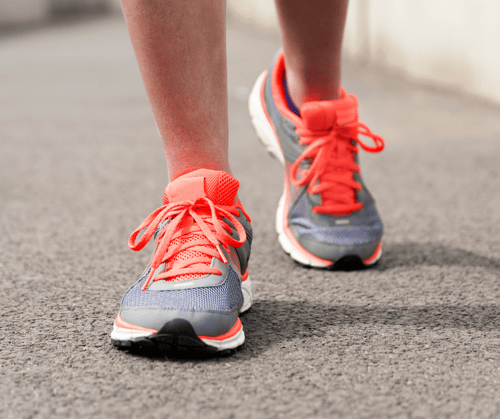
You’ve just run your first marathon (or half marathon) and suddenly your feet are killing you. There's no swelling, but you can’t walk from the pain — it even hurts to lay a blanket on top of them. What gives?
This condition, which has been dubbed “marathon feet,” is very common. It’s when the soft tissues of the feet are inflamed from pounding the pavement for hours on end.
Most often “marathon feet” happens to runners who have trained on softer surfaces (think grass, treadmills or synthetic tracks), OR to runners who wear new or thinner running shoes for the race but have not yet trained in them.
Here’s how you can prevent “marathon feet”:
- Don't wear a brand-new pair of running shoes to the race. If you are due for a new pair of running shoes, get them a few weeks before the event and break them in.
- Train on the same surface you’ll be running the race on — running on grass or a treadmill does not have the same impact on your body as running on asphalt. If your race is on asphalt roads, practice on asphalt roads to prepare your body for the impact.
- Make sure you have well-cushioned running shoes (all the time, not just on race day)! A good rule of thumb is to swap your shoes out for a new pair every 500 miles.
- A 15-minute ice bath for your feet as soon as you get back home (or to your hotel) can go a really long way in helping to prevent “marathon feet.”
Here’s how you can treat “marathon feet”:
- You can take a non-steroidal anti-inflammatory to ease the inflammation (unless your doctor says otherwise).
- Treat your feet to 15-minute ice baths three times a day until pain subsides.
If you experience “marathon feet,” it can take 2 to 3 days post-race for your feet to stop hurting. If at any point you feel tenderness in a bony area of your foot, see a podiatrist to make sure it isn’t a stress (or full) fracture in your foot.







